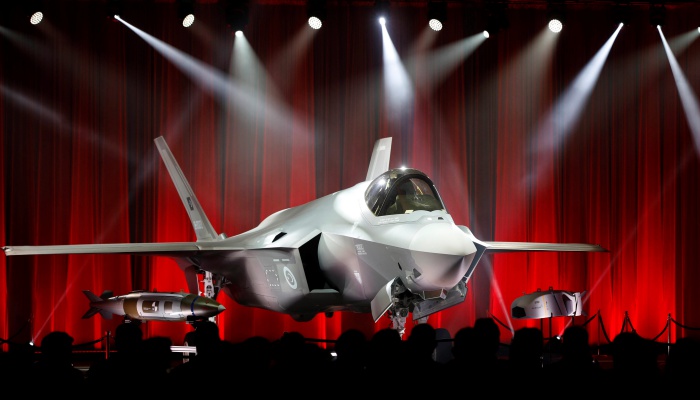Selçuk Bayraktar, the owner of an armed drone manufacturer, has interpreted a US decision to remove Turkey from an international program to jointly manufacture the new generation F-35 stealth fighter jets as an auspicious development. Bayraktar, who is also the son-in-law of President Recep Tayyip Erdoğan, believes that instead of the F-35s, Turkey should focus on unmanned fighter aircraft, claiming that they will have completed the first prototype as of 2023. The countries located in Ankara’s neighborhood, however, have completely different views on the F-35.
The Israeli Air Force, which had added the first F-35 to its inventory back in 2016, currently has 27 of the jets since taking the latest delivery on Sunday, out of the 50 it had originally ordered. In 2024 Israel will have two fleets of F-35s at Nevatim Airbase.
Neighboring Greece, with which Turkey came to the brink of an escalation last summer, has already communicated in a letter to the US administration its intention to purchase between 18 and 24 F-35s, either newly produced or used by the US Air Force. In the letter Athens also requested that the delivery begin in 2021. While Washington has responded positively, the timetable has yet to be settled. Greece has also struck a deal with France to purchase 18 Rafale fighters, of which it has already taken delivery of the first batch.
Turkey had initially planned to acquire 100 F-35s. The first four jets delivered to Turkey in 2019 at a training airbase in Arizona were never allowed to leave the US. Turkey was ultimately removed from the program after failing to reduce the tension with Washington over its purchase of the Russian-made S-400 missile defense system.
Ankara has not unveiled a plan aimed at closing the gap with its neighbors that have acquired the new generation fighters. While a high-level visit to Russia in 2019 included talk of a possible purchase of its SU series, the government appears to have backed away from the idea, which would arguably imply a complete breakoff with NATO.
The “National Fighter Jet project,” a plan to develop Turkey’s own homemade fighter aircraft that was announced by Erdoğan himself, hinges on support from the UK. Yet the project has reached a stalemate as a result of London’s restrictions on technology transfer. Talks for an agreement for the supply of Rolls Royce engines continue to have unresolved problems.
While the Turkish Air Force has kept silent about Ankara’s expulsion from the F-35 program, the declaration awaited by Erdoğan’s vote base came from his son-in-law Bayraktar, who in a video he shot while driving a car declared that Turkey’s removal was a fortunate development. He said a fighter jet similar to the F-35 would take 15 to 20 years to develop domestically and that the country should instead focus on unmanned combat aircraft, which he said was the technology of the future. Bayraktar added that his company, Baykar, will have come up with the first prototype by 2023.
Bayraktar is a popular figure in Turkey, particularly after the success of his drones in the domestic conflict against the Kurdistan Workers’ Party (PKK) as well as in extraterritorial operations in Libya and Nagorno-Karabakh. Yet, his drones also rely on foreign technology for some of their vital components such as optical systems, engines and guidance systems for ammunition.
Which domestic companies will produce the national unmanned fighter jet’s high-tech components has not yet been announced. TUSAŞ and ASELSAN, the country’s foremost military technology suppliers, do not refer to anything related to the unmanned jet among their ongoing projects.
Ship designed for F-35s to be transformed
Another problem is the TGC Anadolu, a ship that can be configured as a light aircraft carrier for the F-35’s horizontal takeoff and landing that Turkey had begun to manufacture. The Presidency of Defense Industries (SSB) decided to redesign the vessel in a way to allow for it to be used for unmanned aerial vehicles. Thus, Turkey will have the world’s first drone carrier. Critics have said this formula, aimed at making use of some $650 million invested in the ship, is meaningless in terms of aerial defense.
Turkey’s drone offensive has significantly bolstered Bayraktar’s firm in recent years. In a 2019 decision, the government granted Baykar a 100 percent tax exemption for eight years and an investment contribution of 120 percent. The incentive implies offering the company a free-of-charge incentive of about TL 600 million ($73 million).

